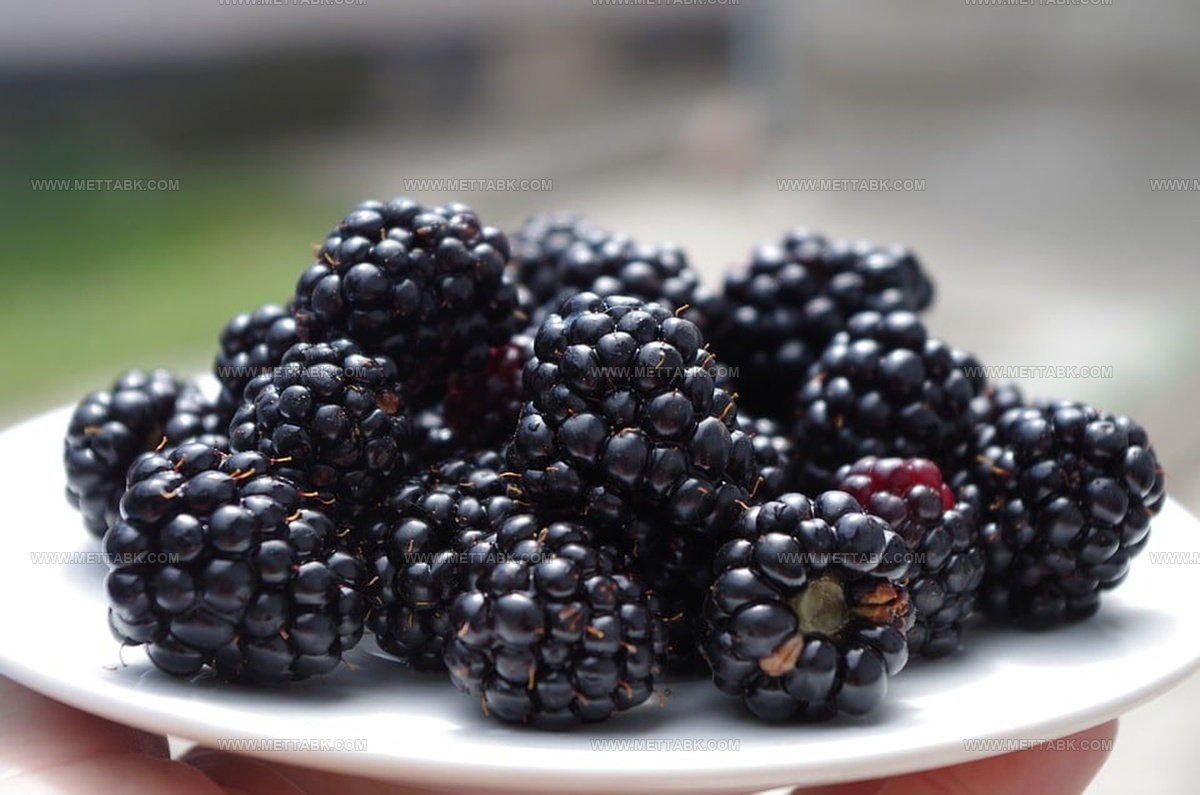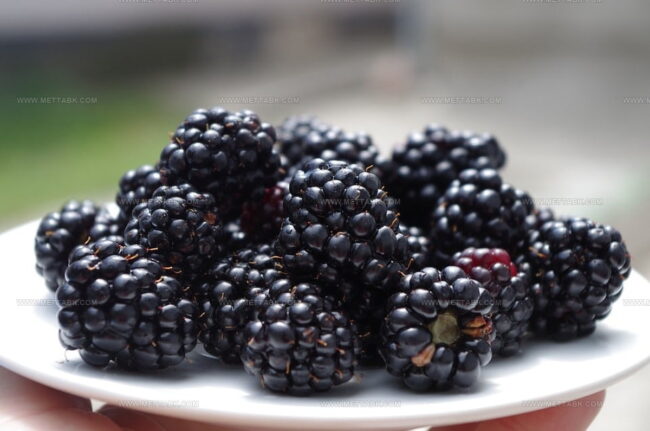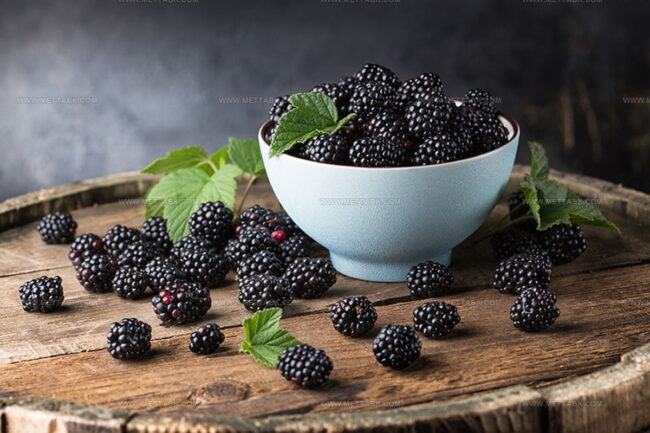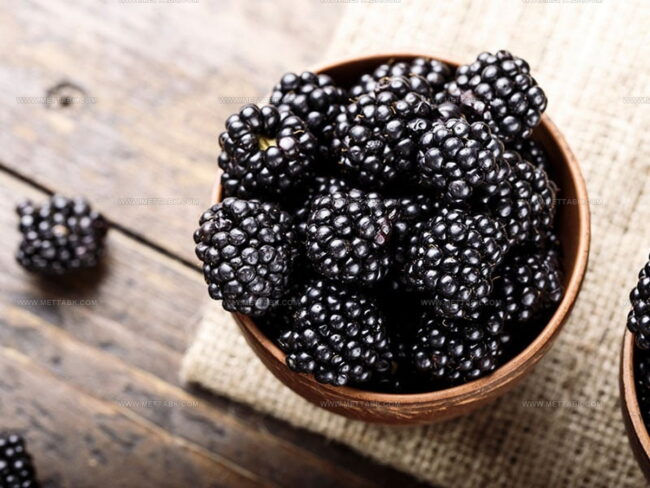What Does Blackberry Taste Like? In-Depth Discussion Here!
Blackberry flavor intrigues many curious food enthusiasts seeking sensory culinary knowledge.
Sweet and complex, these dark berries hide surprising characteristics behind their deep purple-black exterior.
Summer gardens and wild brambles offer these delectable fruits that spark immediate interest among fruit lovers.
Most people recognize blackberries from casual encounters but rarely understand their nuanced taste profile.
Curious eaters wonder about the specific flavor notes that make these berries unique among their fruity counterparts.
Regional variations and ripeness levels contribute significantly to their distinctive taste experience.
Understanding blackberry flavor requires more than a casual glance or random sampling.
Dive into this delightful exploration to unravel the sensory mysteries of these captivating berries.
How Blackberries Taste
Blackberry taste changes based on berry ripeness.
Fully ripe blackberries feel soft in the middle, while less ripe ones have a tougher outer layer.
Bitter flavors often hide in white cores and seeds, so removing these parts can help reduce sharpness.
Seeds and skins work well in recipes but might not taste great when eaten fresh.
Straining blackberries helps create smooth sauces, jams, and smoothies.
Dark berries with white centers come in different flavor profiles.
Some blackberries taste sweet, while others feel puckery or slightly soapy.
Sweetness and tartness depend on the specific berry.
Different characteristics create unique taste experiences.
Simple techniques can help you capture authentic blackberry flavors without artificial additives.
Following key tips ensures delicious blackberry dishes that showcase natural berry goodness!
Blackberry Taste at Different Ripeness Stages
Blackberries change a lot in flavor as they ripen, offering a wide range of taste experiences from tart and tangy to sweet and juicy:
Do Blackberries Taste Like Grapes?
Berries offer a sweet taste close to green and red grapes.
Raspberries and blackberries share plump shapes packed with tiny seeds, creating similar feels in your mouth.
Blackberries carry deeper flavor notes compared to red raspberries.
Blackberries come with bright white centers and glossy surfaces that differ from red versions.
Shoppers might confuse these dark berries with black raspberries since both share matte, dark looks.
Unlike raspberries, blackberries bring unique flavor profiles with cores that hint at subtle earthy undertones.
Personal taste decides which berry someone prefers.
Blackberries reach peak deliciousness when fully ripe.
Which Berry Is The Sweetest?
Blackberry flavor stands out as complex, shifting between tangy and soapy notes.
Identifying specific taste can be tricky, but these berries typically lean toward sweetness compared to raspberries.
When matched against strawberries, blackberries often register as sweeter, with some carrying a pronounced sour undertone.
Generally, blackberries possess a deeper, more woody flavor than raspberries.
Sampling these berries firsthand offers the best way to understand their unique taste profile.
Red raspberries become sweeter as they ripen, carrying a mild tartness that differs from blackberry intensity.
These berries work wonderfully in home gardens, presenting an excellent growing option.
Raspberry plants expand naturally, generating new growth from root systems and gradually increasing patch size over time.
Selecting the sweetest berry requires careful consideration among numerous varieties.
Berries pack significant nutritional power, delivering substantial health benefits.
Antioxidant content helps protect cellular structures from potential damage caused by free radicals.
Fiber-rich characteristics contribute to increased satiety, reducing overall appetite and calorie absorption from mixed meals.
Low-calorie density combined with robust vitamin and mineral content makes berries an exceptionally nutritious food choice.
Popular Blackberry Dessert and Drink Recipes
Blackberries bring a burst of juicy, sweet-tart flavor to all kinds of desserts and drinks, making them a favorite for both simple treats and special occasions:
Blackberries in Savory Dishes
Blackberries aren’t just for sweets, they add a juicy, tangy burst of flavor to savory dishes, bringing color and brightness to everyday meals.
Are Blackberries Or Raspberries Healthier?
Blackberries pack more nutrients compared to blueberries, including higher amounts of fiber, antioxidants, manganese, copper, and vitamins A, E, and K.
Raspberries shine with increased magnesium, vitamin C, and folate content.
Both fruits support overall health and help address specific wellness concerns.
Shedding extra weight becomes easier with these berry options.
Blackberry sweetness increases during ripening, with some varieties offering puckery or tart flavor profiles.
Each blackberry carries a distinct taste, though nutritional similarities exist with raspberries.
Rich vitamin C content and high manganese levels make blackberries stand out.
Dense fiber ensures these berries work well as quick, satisfying snacks for busy individuals.
Should You Eat Blueberries Or Blackberries?
Blackberries pack more vitamin C compared to blueberries, boosting immune system strength.
These dark berries contain plenty of manganese, which supports healthy blood sugar control.
Vitamin E in blackberries works to keep skin, hair, and eyes in good condition.
Contrary to its dark color, blackberries have a white center when picked.
Sweet flavors develop as berries mature on their branches.
Compared to raspberries, blackberries offer a more complex taste profile - slightly tart with subtle bitter undertones.
While some blackberries might seem sharp, most carry a delightful sweetness that berry enthusiasts appreciate.
Differences Between Blueberries And Blackberries
Blackberries showcase deep purple-black colors during summer, offering a special taste.
Blueberries display rich indigo shades when ripe, bringing sweet flavors to summer snacks.
Health benefits differ between these two berries.
Blackberries support digestive systems and may slow tumor development.
Blueberries pack powerful antioxidants that work to block alzheimer's progression and boost heart wellness.
Health Benefits Of Blackberries
Blackberries pack powerful health perks with their mix of antioxidants, vitamins, and minerals.
Special compounds called anthocyanins work hard to fight inflammation and battle harmful microbes.
Medical researchers suggest these compounds might help manage diabetes and combat certain cancer types.
Blackberries also contain lots of insoluble fiber for digestive health.
Nutritional differences between blackberries and blueberries reveal interesting details.
Blackberries shine with higher vitamin C content and lower carbohydrate levels.
Blueberries counter with more vitamin B1, B5, and B6.
Health experts consider blackberries among top berry choices for nutritional value.
Rich antioxidants flood these dark purple berries with wellness benefits.
Scientists confirm blackberries lead the pack in antioxidant concentration.
Cranberries join blackberries near the top of berry rankings for health-boosting compounds.
Small dark berries deliver serious nutrition in compact packages.





Nate Harper
Founder & Recipe Curator
Expertise
Single-Recipe Development, Farm-to-Table Cooking, Seasonal Menu Planning, Culinary Storytelling, Home Kitchen Innovation
Education
Cascade Culinary Institute – Central Oregon Community College
Certificate in Culinary Arts
Focus: Farm-to-table cuisine, sustainable cooking practices, and seasonal recipe creation.
Nate studied under experienced chefs who emphasized local sourcing, minimal waste, and building recipes from fresh, simple ingredients.
Nate Harper is the founder and creative force behind Make, Take, Bake. Raised in the wild beauty of Oregon’s high desert, Nate grew up surrounded by family gardens, farmers’ markets, and home kitchens that celebrated the seasons.
His early love for simple, honest food evolved into a professional passion when he attended Cascade Culinary Institute, where he sharpened his skills in creating recipes that are sustainable, satisfying, and made for everyday life.
Nate’s goal is to make cooking feel accessible, free of fuss, and full of flavor. He believes a single, thoughtfully built dish can stand alone, and sometimes even steal the show.